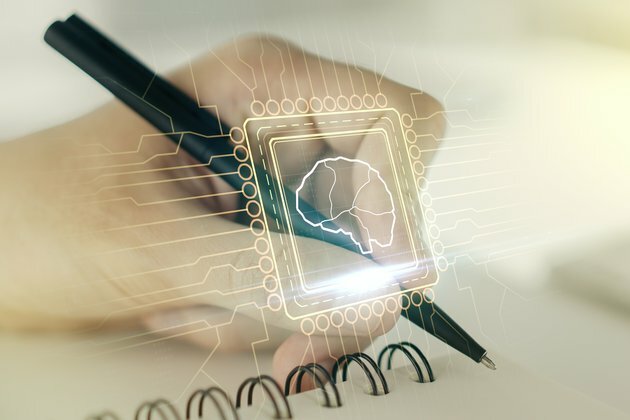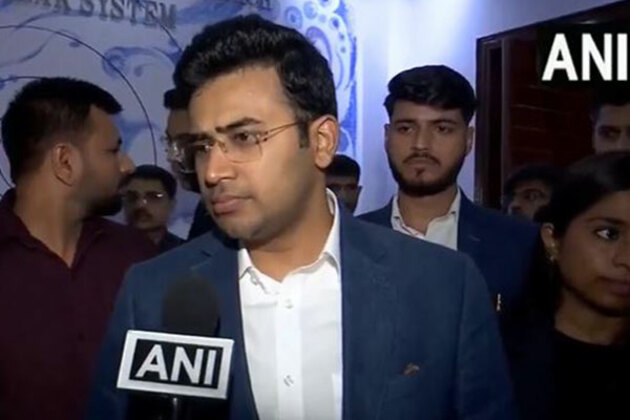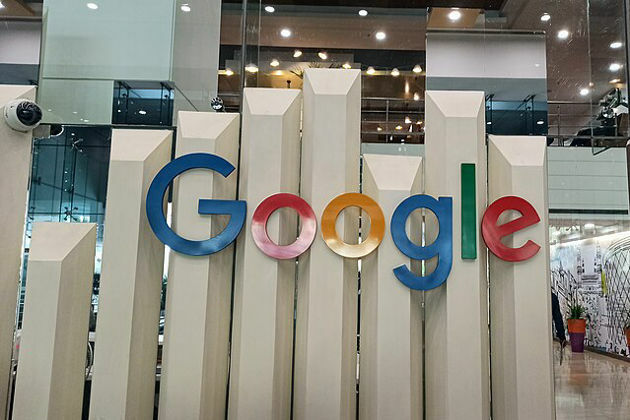In an AI world we need to teach students how to work with robot writers
The Conversation
09 Apr 2021, 02:09 GMT+10

Robots are writing more of what we read on the internet. And artificial intelligence (AI) writing tools are becoming freely available for anyone, including students, to use.
In a period of rapid change, there are enormous ethical implications for post-human authorship - in which humans and machines collaborate. The study of AI ethics needs to be central to education as we increasingly use machine-generated content to communicate with others.
Robots can write, too
AI robot writers, such as GPT-3 (Generative Pre-trained Transformer) take seconds to create text that seems like it was written by humans. In September, 2020 GPT-3 wrote an entire essay in The Guardian to convince people not to fear artificial intelligence.
AI does this through what's called natural language processing and generation. This involves converting human language to computer commands and vice versa. To do this, machine algorithms study millions of text samples, words, sentences and paragraphs humans use to gain a general understanding of the context of human language. Then machines use that knowledge to put together text.
As recently as 2019, this kind of technology seemed a long way off. But today, it is readily available.
For example, the free Zyro content generator provides text for websites. I can select the categories "Health and Living" and "Personal Trainer" (I happen to be one, as well as an academic). In two seconds, the following text appears:
This sums me up (despite the program knowing nothing about me) and would be fine for my website, if I had one. I have the option to generate more responses, and in two seconds, the program offers:
While this is repetitive and Zyro does not notice the apparent error in the last sentence, these issues would be easy to correct. Text, even for niche purposes, can now be generated in a few clicks.
There are other digital tools such as paraphrasers and rewriters that can generate up to 1,000 articles from a single seed article, each of them substantially unique. Quillbot and WordAI, for instance, can rapidly rewrite text and make it difficult to detect plagiarism. WordAI boasts "unlimited human quality content at your fingertips".
Questions for schools and universities
So what does this mean for education, writing, and society?
Of course, there's the issue of cheating on essays and other assignments. School and university leaders need to have difficult conversations about what constitutes "authorship" and "editorship" in the post-human age. We are all (already) writing with machines, even just via spelling and grammar checkers.
Tools such as Turnitin - originally developed for detecting plagiarism - are already using more sophisticated means of determining who wrote a text by recognising a human author's unique "fingerprint". Part of this involves electronically checking a submitted piece of work against a student's previous work.
Many student writers are already using AI writing tools. Perhaps, rather than banning or seeking to expose machine collaboration, it should be welcomed as "co-creativity". Learning to write with machines is an important aspect of the workplace "writing" students will be doing in the future.
AI writers work lightning fast. They can write in multiple languages and can provide images, create metadata, headlines, landing pages, Instagram ads, content ideas, expansions of bullet points and search-engine optimised text, all in seconds. Students need to exploit these machine capabilities, as writers for digital platforms and audiences.
Perhaps assessment should focus more on students' capacities to use these tools skilfully instead of, or at least in addition to, pursuing "pure" human writing.
But is it fair?
Yet the question of fairness remains. Students who can access better AI writers (more "natural", with more features) will be able to produce and edit better text.
Better AI writers are more expensive and are available on monthly plans or high one-off payments wealthy families can afford. This will exacerbate inequality in schooling, unless schools themselves provide excellent AI writers to all.
We will need protocols for who gets credit for a piece of writing. We will need to know who gets cited. We need to know who is legally liable for content and potential harm it may create. We need transparent systems for identifying, verifying and quantifying human content.
Read more: When does getting help on an assignment turn into cheating?
And most importantly of all, we need to ask whether the use of AI writing tools is fair to all students.
For those who are new to the notion of AI writing, it is worthwhile playing and experimenting with the free tools available online, to better understand what "creation" means in our robot future.
Author: Lucinda McKnight - Senior Lecturer in Pedagogy and Curriculum, Deakin University 
 Share
Share
 Tweet
Tweet
 Share
Share
 Flip
Flip
 Email
Email
Watch latest videos
Subscribe and Follow
Get a daily dose of Malaysia Sun news through our daily email, its complimentary and keeps you fully up to date with world and business news as well.
News RELEASES
Publish news of your business, community or sports group, personnel appointments, major event and more by submitting a news release to Malaysia Sun.
More InformationSoutheast Asia
SectionFlight recorder may reveal cause of deadly crash of Air India Boeing
NEW DELHI, India: The flight data recorder from the crashed Air India plane was found on June 13. This vital discovery may help investigators...
Ukraine sea drone success inspires Taiwan defense plans against China
WUSHI, Taiwan: Inspired by how Ukraine has used sea drones effectively against Russia in the Black Sea, Taiwan is learning how to use...
Foxconn iPhone exports from India now mostly headed to the US
NEW DELHI, India: Amid mounting U.S.-China trade tensions, Apple has sharply increased iPhone shipments from India to the United States,...
Rajasthan’s city records scorching 47.3°C, as India faces heatwave
NEW DELHI, India: A scorching heat wave is engulfing northern India, with temperatures rising well above normal and causing significant...
UAE, Pakistan launch strategic partnership to modernise government operations
DUBAI, 18th June 2025 (WAM) -- The governments of the UAE and Pakistan have launched a strategic partnership aimed at modernising government...
"PM Modi made it clear we donot want any external mediation": BJP MP Tejasvi Surya
New Delhi [India], June 18 (ANI): Following the telephonic conversation between Prime Minister Narendra Modi and US President Donald...
Business
SectionState Dept memo outlines plan to widen Trump travel ban
WASHINGTON, D.C.: The Trump administration is weighing a major expansion of its travel restrictions, with a new internal memo revealing...
Boeing trims long-term jet outlook ahead of Paris Airshow
ARLINGTON COUNTY, Virginia: As global air travel continues its recovery from the pandemic, Boeing has released a tempered 20-year outlook...
Wall Street rattled by hawkish Trump comments on Iran
NEW YORK, New York - U.,S. stocks closed lower Tuesday as President Donald Trump hinted the United States may join Israel in its attacks...
Meta buys 49 percent of Scale AI, brings CEO Wang to lead AI efforts
MENLO PARK, California: Meta Platforms has made a bold move to accelerate its artificial intelligence ambitions—by investing US$14.3...
Nippon Steel deal requires US security agreement
WASHINGTON, D.C.: This week, President Donald Trump signed an executive order that facilitates Nippon Steel's potential investment...
Spotify, Discord disrupted by brief Google service glitch
MOUNTAIN VIEW, California: On June 12, Google announced that it had fixed a temporary global service disruption that impacted several...













